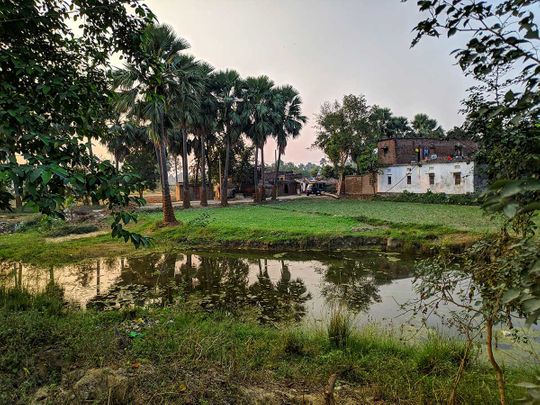
Patna: Villagers in Bihar have created an imaginary hamlet in official records to siphon off funds meant for poor, unemployed people.
The funds were part of the Mahatma Gandhi National Rural Employment Guarantee Act (MGNREGA), a labour law that aims to enhance livelihood security in rural areas by providing at least 100 days of wage employment in a financial year to every household whose adult members volunteer to do unskilled manual work.
The plunder of government funds meant for helping the poor, unemployed villagers took place in Siwan district where a former village council chief Nisha Devi issued fake job cards to dozens of villagers, said to be inhabitants of Tal-Lahar village which doesn’t exist.
A rural development department official said the village mentioned as Tal-Lahar in the job cards is a water-logged area where nobody lives. “This imaginary village was mentioned in the job cards of the villagers just to siphon off government funds,” a rural development department said, adding the fact came to light during an inquiry conducted by the department.
According to the official, many residents from other villages were shown to be residents of this “fake” village. Many villagers described as being job card holders are either from well-off families or who died a long time ago, highlighting large-scale corruption in the MNREGA scheme.
“We have found large-scale fraud in MGNREGA funds during the probe and necessary action is being taken,” a senior government official Ashok Kumar said on Thursday.
A recent study conducted by a group of Non-Profit Organisations says MNREGA has failed to serve its purpose among the poor villagers, many of them now being returnee migrants. The study was conducted in the twin states of Bihar and Uttar Pradesh.
According to the study, although the government has increased MNREGA allocation, this is not reaching those most in need. The major factors coming in the way, according to the study, are corruption, delay in non-payment of remuneration, low job allocation, and loans that the community has taken from non-institutional sources. The study said despite the government’s good intention and budgetary allocations, the villagers are getting into a debt trap and children are at high risk of child labour.
The study said only 20-50% job card holders have been able to access MGNREGA work which is leading to distress migration. “In Bihar, in most locations only 50% of families have job cards and those who don’t have them, are not interested in getting them issued because of their previous experience of non-payment/delay in payment. In UP, even in areas where job card holders are significantly high, job allocation is very low. In both states, communities are dependent on verbal requests for job demand which cause a lacuna for corruption,” the study said.











